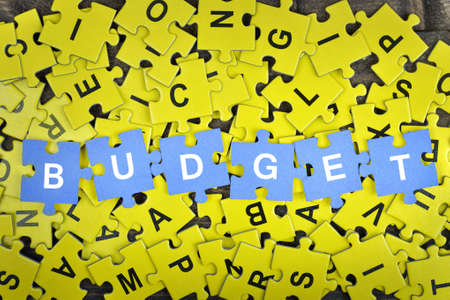Understanding the Basics of Numerology
Numerology is an ancient system that connects numbers to different aspects of our lives, including our personalities and relationships. In American society, numerology has become more than just a mystical or spiritual practice—it’s a fun and insightful way for people to better understand themselves and their friends. But what exactly is numerology, and how does it relate to friendship dynamics?
What Is Numerology?
At its core, numerology is the study of the symbolic meanings of numbers. Each number is believed to carry its own unique energy, influencing traits, behaviors, and even compatibility between individuals. The most common starting point in numerology is the calculation of your “Life Path Number,” which is derived from your birthdate. This number reveals important information about your character and how you interact with others.
Key Numerology Numbers and Their Meanings
| Number | Personality Traits | Friendship Style |
|---|---|---|
| 1 | Independent, ambitious | Leader in friend groups, initiates plans |
| 2 | Sensitive, diplomatic | Mediator, values harmony in friendships |
| 3 | Creative, outgoing | The entertainer, brings fun to gatherings |
| 4 | Practical, reliable | The dependable friend, always there to help |
| 5 | Adventurous, energetic | Loves spontaneity, encourages new experiences |
| 6 | Nurturing, responsible | The caregiver, supports friends through thick and thin |
| 7 | Thoughtful, introspective | The deep thinker, enjoys meaningful conversations |
| 8 | Confident, goal-oriented | The motivator, inspires friends to achieve more |
| 9 | Compassionate, idealistic | The humanitarian, brings people together for good causes |
How Numerology Connects to Friendships in the U.S.
In America’s diverse culture, friendships often form among people from different backgrounds and beliefs. Numerology offers a playful yet meaningful lens for understanding why certain personalities click while others may clash. By exploring each person’s Life Path Number or other key numerological traits, friends can gain insight into their unique strengths and challenges within a group. This can lead to stronger bonds and smoother communication—whether you’re making weekend plans or working through disagreements.
If you’re curious about your own Life Path Number and what it means for your friendships, all you need is your birthdate. From there, you can start exploring how numbers might be shaping the way you connect with others in everyday American life.
2. Americans and Numerology: A Cultural Perspective
Numerology has found a unique place in American society, blending ancient practices with modern trends. While numerology originated thousands of years ago, its influence can be seen today in various aspects of American life, from pop culture to everyday conversations among friends.
Numerology in Pop Culture
In the United States, numerology often shows up in movies, TV shows, books, and even music. Celebrities sometimes mention their “lucky numbers” or talk about the meaning behind important dates. For example, people might notice references to the number 7 or 11 in films or songs, connecting these numbers to good luck or special significance. Social media platforms also help spread numerology concepts through quizzes, memes, and posts about personal experiences with numbers.
Numerology in Social Circles
Within friend groups, it’s common for Americans to talk about their birthdays and see if certain numbers match up or have a deeper meaning. Some people enjoy comparing their “life path number” or checking compatibility based on numerological charts. While not everyone takes numerology seriously, it can still be a fun way to spark conversations and share stories among friends.
How Numerology is Practiced in the U.S.
| Practice | Description | Common Settings |
|---|---|---|
| Life Path Number Readings | Calculating and discussing the significance of birth dates and names | Social gatherings, online forums |
| Lucky Numbers | Picking favorite numbers for lottery tickets or sports jerseys | Everyday life, entertainment events |
| Compatibility Checks | Comparing numbers to see how well friends or partners match up | Dating apps, group hangouts |
| Themed Parties | Hosting events based on numerology themes (e.g., “Lucky 7” parties) | Birthday parties, special occasions |
The Role of Skepticism and Fun
It’s important to note that many Americans approach numerology with a playful attitude rather than deep belief. For some, its all about having fun with friends and finding creative ways to connect. Others may take it more seriously and incorporate numerological insights into their daily lives. Either way, numerology continues to shape friendship dynamics by offering new ways for people to engage with each other.
![]()
3. Numerology’s Role in Forming Friendships
How Americans Use Numerology to Build and Understand Friendships
In American society, numerology is more than just a mystical concept—it can be a fun and meaningful way for people to explore friendship dynamics. While not everyone bases their social circles on numbers, some Americans enjoy using numerology to get insights into compatibility, deepen connections, or even guide the process of choosing friends.
Numerology and Compatibility Assessment
Many Americans turn to numerology when they want to understand if they are likely to click with someone new. By calculating Life Path numbers—a popular practice—people can get a sense of shared values, communication styles, and emotional tendencies. If two friends have Life Path numbers that complement each other, they might feel naturally connected or find it easier to resolve conflicts.
| Life Path Number | Traits | Compatible Numbers |
|---|---|---|
| 1 | Independent, ambitious | 3, 5, 6 |
| 2 | Cooperative, sensitive | 4, 6, 8 |
| 3 | Creative, sociable | 1, 5, 7 |
| 4 | Practical, organized | 2, 6, 8 |
| 5 | Adventurous, adaptable | 1, 3, 7 |
| 6 | Caring, responsible | 2, 4, 9 |
| 7 | Analytical, thoughtful | 3, 5, 9 |
| 8 | Ambitious, efficient | 2, 4, 6 |
| 9 | Compassionate, idealistic | 6, 7, 3 |
Nurturing and Strengthening Friendships through Numerology Insights
Beyond compatibility checks, some Americans use numerology as a tool for understanding and supporting their friends. For example, knowing a friend’s number may help someone choose birthday gifts that fit their personality or plan activities that both will enjoy. It also offers a way for friends to celebrate their differences and work through misunderstandings by recognizing how personal numbers influence reactions and needs.
Selecting New Friends Based on Numbers
A few numerology enthusiasts in the U.S. go so far as to let numbers guide them in making new friends. They may ask about birthdays early on or calculate compatibility before investing deeply in a relationship. While this isn’t the norm for most Americans, it is part of the growing trend of blending self-help practices with social life.
An Everyday Example: Birthday Parties and Shared Numbers
If you’ve ever seen themed birthday parties where guests share the same birth date or Life Path number—or if you’ve heard friends compare their “number stories”—you’ve seen numerology at play in American friendships. These moments create a sense of belonging and spark conversations that help people connect on a deeper level.
Naturally, while numerology is just one factor among many in forming American friendships, it adds an extra layer of fun and meaning for those who enjoy exploring the mysteries behind human connection.
4. Navigating Friendship Challenges Through Numerology
Friendship is a vital part of American life, but even the closest friends can face misunderstandings, conflicts, or times of change. Numerology offers unique insights that can help Americans better understand and navigate these friendship bumps. By looking at the numerology numbers connected to you and your friends—like Life Path Numbers—you can find new ways to communicate, resolve problems, and strengthen your bonds.
Understanding Conflict Styles Through Numbers
Each numerology number reflects certain personality traits. When friends know each other’s numbers, they can spot potential sources of conflict and handle them with empathy. For example, a friend with a “1” Life Path might value independence and directness, while a “2” may prefer harmony and compromise. If a disagreement happens, knowing these differences helps both sides avoid taking things too personally.
Common Friendship Challenges and Numerological Guidance
| Challenge | Numerology Insight | Tips for Resolution |
|---|---|---|
| Miscommunication | Life Path 3s love to talk, while 7s need space to think | Give time for both open conversation and quiet reflection |
| Different Priorities | 5s crave adventure; 6s seek stability | Plan activities that balance excitement and comfort |
| Feeling Unappreciated | 8s need recognition; 9s value emotional connection | Acknowledge achievements and share feelings regularly |
| Difficult Changes (moving, new jobs) | 4s resist change; 1s embrace it | Be patient with adjustment periods and offer steady support |
Applying Numerology in Real-Life Situations
If you’re facing a rough patch with a friend, consider calculating both of your Life Path Numbers. You can do this easily online or with a simple formula using your birthdates. Once you know your numbers, look up the strengths and challenges for each. Use this information to guide conversations—like explaining how you see things differently, or brainstorming solutions that respect both people’s needs.
Example:
If you’re a Life Path 2 (peacekeeper) and your friend is a Life Path 8 (leader), you might clash when making group plans. Knowing this, you could take turns leading decisions or agree on ground rules so everyone feels valued.
Cultural Fit: Why It Works in America
Americans value individuality but also appreciate teamwork and open communication. Numerology gives a fresh way to celebrate differences while finding common ground—a perfect match for American friendship culture.
5. The Influence of Skepticism and Diversity in American Society
Understanding America’s Diverse Landscape
America is often called a “melting pot” because people from so many different cultures, religions, and backgrounds live together. This diversity shapes how Americans view spirituality, including practices like numerology. Some people are very open to spiritual ideas, while others are more skeptical or even dismissive.
The Spectrum of Belief: Openness vs. Skepticism
Attitudes toward numerology in American society can vary widely. Some individuals see numbers as meaningful and enjoy exploring numerology with friends. Others may be skeptical, viewing it as a superstition or just for fun. These differences can influence whether numerology becomes a bonding activity or something avoided in friendships.
| Belief Attitude | Typical Approach to Numerology | Impact on Friendships |
|---|---|---|
| Open/Spiritual | Actively discusses and explores numerology; may share readings among friends | Can strengthen connections with like-minded peers |
| Skeptical/Scientific | Tends to dismiss numerology; might joke about it but does not take it seriously | Could lead to light teasing or avoidance of the topic in certain groups |
| Culturally Curious | Interested in learning about numerology from different cultural perspectives | Might use numerology as a way to bond over shared heritage or curiosity |
Diversity’s Role in Friendship Groups
Because American friend groups can include people from varied backgrounds, conversations about numerology might look different from one circle to another. For example, some friends might celebrate each other’s beliefs by trying out numerology readings for birthdays, while others may respectfully opt out.
Tips for Navigating Numerology in Diverse Friendships
- Be open to hearing your friends’ views—even if they differ from yours.
- If you love numerology, share it in a light-hearted way and watch for your friends’ comfort levels.
- Respect when someone prefers not to participate; focus on what brings you together instead.
Key Takeaway:
The influence of numerology on friendships in America depends a lot on personal beliefs and cultural backgrounds. By understanding and respecting these differences, friends can maintain strong bonds—whether or not they believe in the power of numbers.


